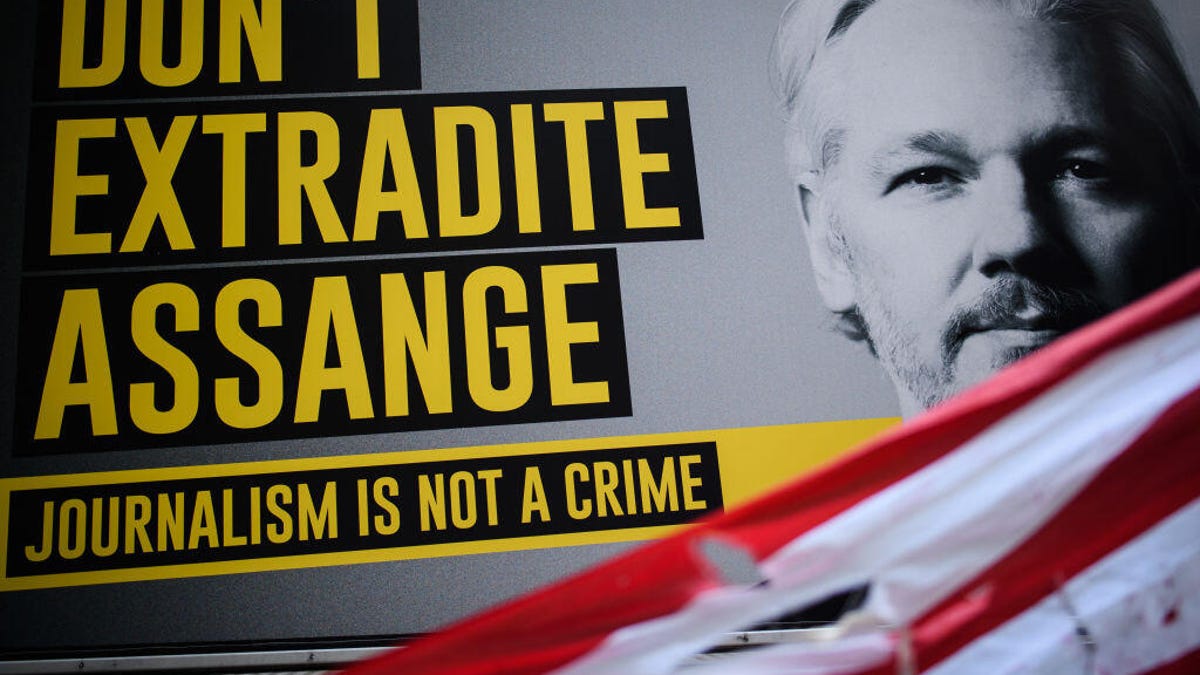Julian Assange case: UK lawmakers ask Biden to drop charges against WikiLeaks founder
Pressure is mounting from the UK for the US to rescind its demand for Assange's extradition.

This message in support of Julian Assange was spotted on a van in London in September 2020.
A cross-party group of 24 British members of Parliament wrote to President Joe Biden on Friday asking him to drop all charges against WikiLeaks founder Julian Assange . Dropping the charges would be "an act that would be a clarion call for freedom that would echo around the globe," they said.
Together, the lawmakers pointed out that while Biden was vice president, he played an important role in choosing not to prosecute Assange over WikiLeaks' publication of classified documents relating to the wars in Afghanistan and Iraq, as well as the conditions in Guantanamo Bay. In spite of this, they added, Biden -- who is in the UK attending the G7 summit -- has not chosen to drop the charges brought against Assange during Donald Trump's presidency.
Cross party group of 24 UK parliamentarians call for President Biden to drop the prosecution of Julian Assange, 'an act that would be a clarion call for freedom that would echo around the globe' #FreeAssangeNOW #G7 pic.twitter.com/fJIAdJfHpE
— WikiLeaks (@wikileaks) June 11, 2021
"The case against Mr. Assange also undermines public confidence in our legal systems," the lawmakers wrote in the open letter. "Our countries are also increasingly confronted with the contradiction of advocating for press freedom abroad while holding Mr. Assange for years in the UK's most notorious prison at the request of the US government."
Representatives for the White House didn't immediately respond to a request for comment. A representative from the Department of Justice declined to comment.
Assange is wanted in the US on espionage charges and faces an 18-count indictment accusing him of conspiring to hack military databases to publish classified information about the wars in Iraq and Afghanistan. If convicted, he could be handed a 175-year jail sentence, although the US government has said he would likely face a sentence of between four and six years.
In January, a judge in the UK blocked the US attempt to extradite Assange on the basis of his mental health. The judge was worried that Assange would be likely to try to kill himself if subjected to the US prison system.
As a result, Assange, who left the Ecuadorian Embassy in London in April 2019 after living there for seven years, is now facing a third consecutive year in Belmarsh High-Security Prison. For 50 weeks, he was serving a sentence for skipping bail, but ever since he's been awaiting news of whether the US will drop charges against him. Assange's lawyers are fighting to have him released.
"It's a continuing stain on the reputation of this country that Julian Assange remains in Belmarsh prison," said one of the signatories, John McDonnell MP, during a parliamentary debate on Thursday. "There are no justifiable grounds for keeping imprisoned a journalist who had the courage to expose war crimes and abuse of human rights."

